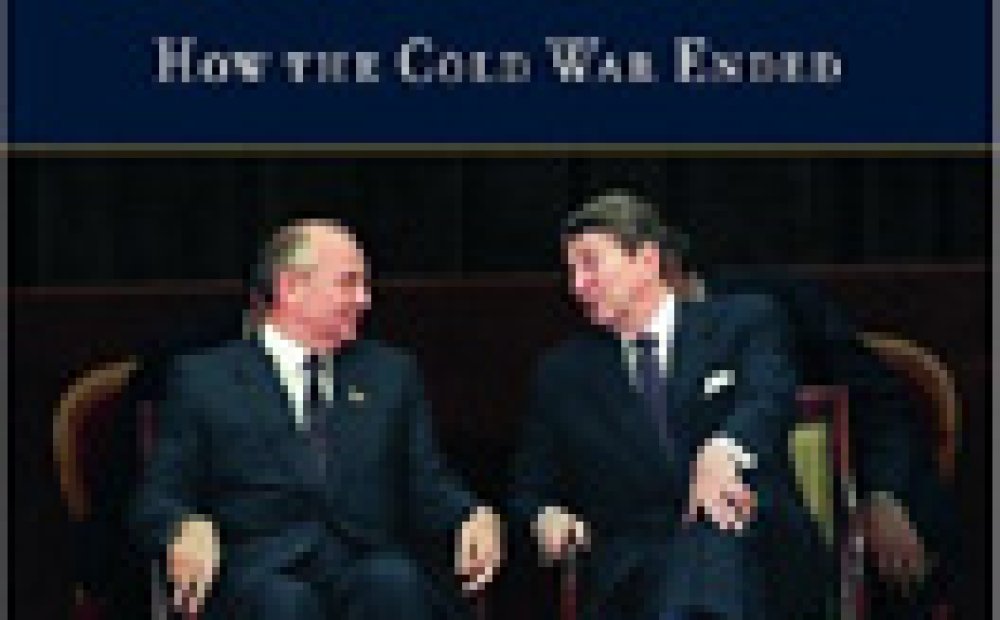Reagan and Gorbachev : How the Cold War Ended

Ambassador Jack F. Matlock, former Special Assistant to the President for the Soviet Union during the Reagan Administration and the last US ambassador to the Soviet Union, told a packed audience that the reason he decided to write this book were the many misconceptions held as truths about how and when the Cold War ended. Too many comments distorted the events, Matlock said, at least the way he, as an insider in the Reagan and George H. W. Bush administrations, saw and understood them. Suggestions that the US "won" the Cold War, or that the Reagan administration "did the Soviets in" were anathema to the way the administration actually saw the issue. The Cold War ended, Matlock suggested, earlier than the collapse of the Soviet Union and even earlier than the collapse of communist rule. A clear picture of the past is necessary in order to correctly judge events later on, Matlock argued.
From the late 1980s to the early 1990s, three great convulsions shook the international system. The end of the Cold War was just one of them, and it occurred because of the cooperation between the leaders of the Western alliance with Gorbachev, Matlock continued. Reagan and Gorbachev were the two central players in this, and the absence of one or both would have dramatically changed the process. The end of Communist rule in the Soviet Union was a much different matter from the end of the Cold War. Maybe it would not have happened without the end of the Cold War, Matlock pondered, but it did not predispose it. Western policy, he continued, certainly did not have that goal in mind. In the end, the collapse of the Soviet Union was due to internal factors, not western policy. Gorbachev's reforms, which the West encouraged, together with the end of the Cold War, removed the lid from the simmering pot of the Soviet Union. Reagan himself never thought in terms of a zero sum game with the Soviets—irrespective of what some of the members of his administration thought. Rather, he believed that democracy won against totalitarianism, and US policy sought to achieve its goals without doing undue harm to a peaceful Soviet Union.
The book describes the process as it occurred, sometimes at a very fast pace, and, in Matlock's opinion, driven by essentially two people: Reagan and Gorbachev. Was it not for them, the Cold War would not have ended when it did, nor as peacefully as it did. Even if the Soviet economy was suffering, had Gorbachev not weaken the Communist grip on power, the system would have survived, and might even be present today, Matlock concluded. It was because of their respective political skill, and their ability to get their respective administrations behind the decisions they made together, that allowed for things to evolve the way they did. The book is a narrative of how the events evolved and how decisions were made, primarily from the US side, but includes some of the emerging evidence from the Soviet archives. It also relied heavily on the available documentary record.
The book adds new insights on Reagan's understanding of the Cold War and on his relations with Gorbachev, on his methods, and on what Reagan wanted to accomplish from some of his meetings with Gorbachev. Prior to the meeting in Geneva, Matlock told the audience, Reagan dictated to his secretary his goals. At the end, he added that "whatever we accomplish, we must not call it victory, since [the Soviets] must understand they are doing this in their own interest," Matlock paraphrased the president. Other new evidence deals with the meeting in Reykjavik, which at the time was considered a failure, only to be better understood later. Gorbachev, for example, considered the meeting in Reykjavik the turning point in the relations with the US and his relations with Reagan. Followed by Reagan's visit to Moscow, relations between the too leaders really took off.
The Cold War really ended by December 1988, Matlock suggested; what happened after that was "clean-up diplomacy." It was important, and the George H. W. Bush Administration deftly carried it out, but nevertheless, it was no longer Cold War diplomacy.
Commenting on the book, National Security Archive's director Thomas S. Blanton suggested that the book shows once again that the end of the Cold War was in itself a miracle. Jack Matlock, Blanton said, combines the "supply and demand" historians depend on, that of documents and eyewitness; Reagan and Gorbachev is an example of just such work. The book is a success in terms of creating an interactive history—bringing in his former interlocutors and taking them seriously, both then and now. Yet, ever the diplomat, Matlock was always too uncritical to some of his peers, Blanton told the audience. The reader, he concluded, is left wanting more of the inside details, of the conflicts and the turf-wars within the Administration.
Hosted By

Cold War International History Project
The Cold War International History Project supports the full and prompt release of historical materials by governments on all sides of the Cold War. Read more
